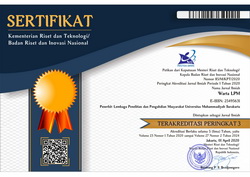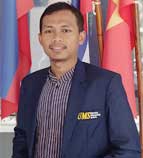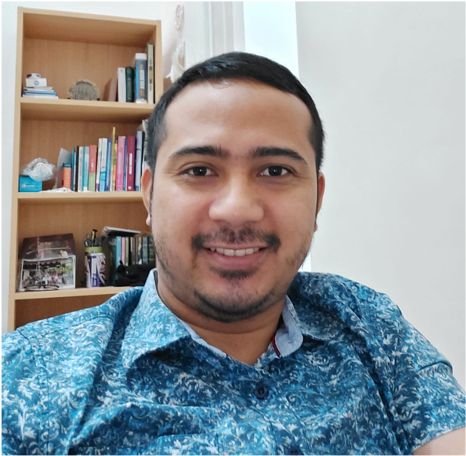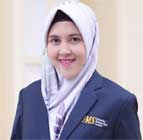Literasi Media Publik untuk Pekerja Media melalui Akademi Media Publik
DOI:
https://doi.org/10.23917/warta.v25i4.1416Keywords:
Public Media Academy, Public Service Broadcasting, Public Media Literacy, Media Democracy, Community DevelopmentAbstract
This paper reports a community development project, particulary an initiative to overcome the scarcity of public media advocacies with strong emphasis to the dissemination of public media knowledge. The advocacies to urge public media as a pillar of a democratized media in Indonesia has been going on since 2002. However, most movements are centered solely on academic forums, research or political lobby aspiring policy changes to Indonesian policymakers. This project fills the gab by establishing media academy, a model of public media course targeted public media professionals. This project was organized throughout August and September 2021, involved two institutions: the Communication Study Program of Universitas Islam Indonesia and Public Broadcast Clearing House (RPLPP) as the main partners of this social program. The course provides an interactive online course involving 15 participants and 8 mentors using Zoom meet application. In addition to lectures on public media system and its policies, participants of this course receive assistance in their creation as well as production of a public oriented content which are worthy of being displayed on their digital media channels. This activity succeeded in enriching the participants’ insight and analytical skills on public media issues. It also succeeded in designing a public media curriculum, which could be adopted by higher education institution of communication in Indonesia.
References
Astuti, S. I., & Zulfrebriges. (2016). Posisi Lembaga Penyiaran Publik Menghadapi Tantangan Perkembangan Teknologi dan Khalayak Digital Native. Jurnal Observasi, 14(1), 13–25.
Booth, P. (2020). The future of Public Service Broadcasting and the Funding and Ownership of the BBC. Economic Affairs, 40(3), 324–343. https://doi.org/10.1111/ecaf.12419
Clurel, D. (2016). Media Literacy: Concepts, Approaches and Competencies. Professional Communication and Translation Studies, 9(1), 13–20.
Dragomir, M. (2018). Control the Money, Control the Media: How Government uses Funding to Keep Media in Line. Journalism, 19(8), 1131–1148. https://doi.org/10.1177/1464884917724621
Fuchs, C. (2010). Alternative Media as Critical Media. European Journal of Social Theory, 13(2), 173– 192. https://doi.org/10.1177/1368431010362294
Hallin, D. C., & Mancini, P. (2011). Comparing Media Systems Beyond the Western World (D. C. Hallin & P. Mancini (eds.)). Cambridge University Press. https://doi.org/10.1017/CBO9781139005098
Horowitz, M. A. (2015). Public Service Media and Challenge of Crossing Borders: Assessing New Model. Media Studies, 6(12), 80–91. https://hrcak.srce.hr/ojs/index.php/medijske-studije/article/ view/6155
Hudayana, B., Kutanegara, P. M., Setiadi, S., Indiyanto, A., Fauzanafi, Z., Nugraheni, M. D. F., Sushartami, W., & Yusuf, M. (2019). Participatory Rural Appraisal (PRA) untuk Pengembangan Desa Wisata di Pedukuhan Pucung, Desa Wukirsari, Bantul. Bakti Budaya, 2(2), 3. https://doi.org/10.22146/ bb.50890
Intani, R. (2013). Transformasi LPP TVRI di Tengah Pergolakan Politik dan Struktural. Jurnal Komunikasi, 7(2), 141–162. https://journal.uii.ac.id/jurnal-komunikasi/article/view/6411
Iosifidis, P. (2011). The public sphere, social networks and public service media. Information, Communication & Society, 14(5), 619–637. https://doi.org/10.1080/1369118X.2010.514356
Masduki, M. (2017a). Tata Kelola Lembaga Penyiaran Publik Dunia. In RPLPP.
Masduki, M. (2017b). Media and Politics: Re-thinking the Indonesian Broadcasting System. Jurnal Ilmu Sosial Dan Ilmu Politik, 21(1), 14. https://doi.org/10.22146/jsp.28680
Nuroniyah, A. (2021). Home Teaching Era Pandemi Covid-19 pada siswa SD sebagai Upaya Mengatasi Problematika Pembelajaran Daring. Warta LPM, 24(3), 466–475. https://doi.org/10.23917/ warta.v24i3.14053
Saputra, H. (2020). Pembelajaran berbasis Masalah. In Perpustakaan IAI Agus Salim.
Smith, E. (2012). A road map to Public Service Broadcasting. In The Asia Pacific Broadcasting Union (ABU).
Sudibyo, A., & Patria, N. (2013). The television industry in post-authoritarian Indonesia. Journal of Contemporary Asia, 43(2), 257–275. https://doi.org/10.1080/00472336.2012.757434
Sulfemi, W. B. (2018). Modul Manajemen Pendidikan Non-Formal. In Universitas Muhammadiyah Bogor. Universitas Muhammadiyah Bogor. https://osf.io/preprints/inarxiv/p9bez/
Widyatama, R. (2018). Television Business in Indonesia: A Comparative Study of the Old Regime, the New Order and the Reform Era. Oradea Journal of Business and Economics, 3(1), 66–75. https:// doi.org/10.47535/1991ojbe036
Wulandari, N. A. D. (2017). Lembaga Penyiaran publik Indonesia dalam Persimpangan Idealisme Vs Ekonomi Politik Media. Interaksi: Jurnal Ilmu Komunikasi, 5(1), 78–89. https://doi.org/10.14710/ interaksi.5.1.78-89
Downloads
Submitted
Published
How to Cite
Issue
Section
License
Copyright (c) 2022 Warta LPM

This work is licensed under a Creative Commons Attribution 4.0 International License.















